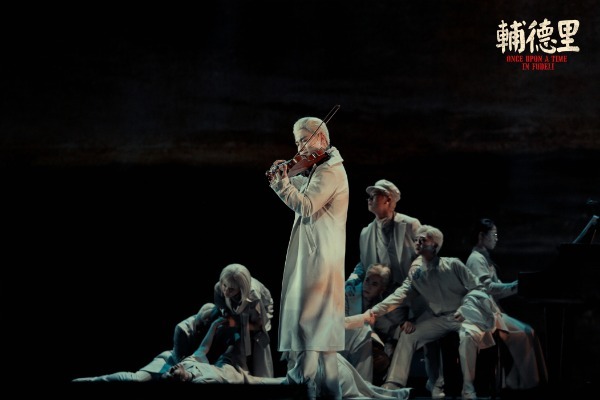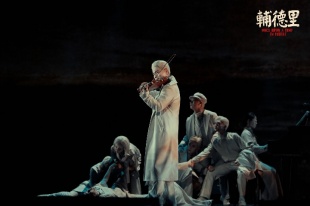Remembering revolutionaries from once upon a time


Once Upon a Time in Fudeli, the first theater production to feature the Second National Congress of the Communist Party of China, premiered in Shanghai on April 23.
Commissioned by the culture and tourism administration of Jing'an district, the play was the opening show at Modern Drama Valley, an annual theater festival hosted by the district.
The play is currently on a 10-city tour of eastern China that will cover cities including Nanjing, Hefei, Wuxi and Yantai. The production will return to Shanghai and will run at Daning Theater from June 23 to July 4.
Now known as No 3 in Lane 7 on the old Chengdu Road North in Shanghai's Jing'an district, No 625 of Fudeli is the site where 12 CPC members convened the second CPC national congress and formulated the Party's constitution-the fundamental guide for all activities of the Party-in July 1922.
This venue was also where the CPC opened its first school for civilian women who eventually became the first female cadres of the CPC.
Wang Huiwu, one of the founders of the civilian women's school, died in 1993. Shanghai decided to conserve the historical site of Fudeli that same year during the construction of a new elevated highway across the city center.
Moved by Wang's story, famous theater director Mu Sen went on to produce a play about her. Wang was also a key figure in the organization of the Party's first national congress in 1921.
"There is a sense of destiny and a dramatic quality in real-life history which we can't possibly make up," he says.
Throughout the process of the play's production, Mu made sure that all the text and dialogue used remained true to historical documentation. The production focuses on the birth of the Party's constitution, six important documents initiated at the second national congress, and the stories of young Communists, such as Chen Duxiu, Li Da, Wang Huiwu and Mao Zedong.
To re-create historical scenes, the creative team from the China Academy of Fine Arts reproduced the gateway of Fudeli at the entrance of the theater. Stepping inside, miniature models portraying 16 scenes that took place before and after the second CPC national congress are on display.
Gao Shiming, head of the China Academy of Fine Arts, says that creating this exhibition helped young students and teachers better understand the pioneering revolutionaries.
Instead of presenting the narrative in chronological order, Mu brought together 18 actors to present fragments of history, covering a wide variety of people, incidents and locations through recitals, songs and live music performances.
From 1921 to 1949, more than 3.8 million Communists died in China."When these words were shown on the big screen, many people in the audience had tears in their eyes," writes Yu Liangxin in a review on Xinmin Evening News."Such is the real power of nonfiction theater."
Jing'an district will create an HD film projection of the play and introduce a series of events and publications alongside the performance. The district also plans to create new cultural brands based on the landmark building in Fudeli.





































